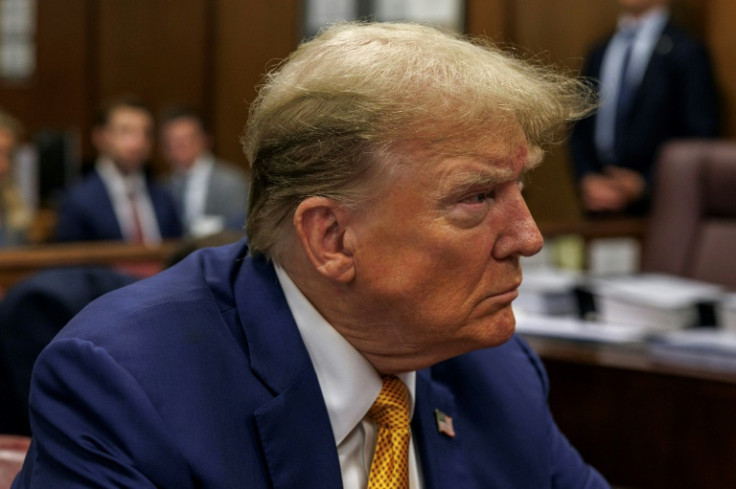
Former President and GOP nominee Donald Trump is seeking to delay his criminal sentencing for his historic hush money trial in Manhattan until after the presidential election. As the legal community debates on the basis of his request, a former U.S. attorney argues the recent court filing is merely a "desperate" bid to avoid his fate.
In a letter to the case's judge, Juan Merchan, lawyers for Trump noted that his sentencing was currently set just weeks before Election Day, on Sept. 18. The lawyers argued that the timing could improperly influence voters and compromise Trump's efforts to reverse his conviction on charges that he falsified records to cover up a sex scandal.
"Sentencing is currently scheduled to occur after the commencement of early voting in the presidential election," the lawyers, Todd Blanche and Emil Bove, wrote. "By adjourning the sentencing until after that election— which is of paramount importance to the entire nation, the court would reduce, even if not eliminate, issues regarding the integrity of any future proceedings."
The question of Trump's sentencing— as well as the rest of his other criminal cases— has lingered on expert's minds, as a recent U.S. Supreme Court ruling granted him broad immunity for official actions as president.
Because of that ruling, Trump's lawyers argued that his sentencing should be postponed to "allow President Trump adequate time to assess and pursue state and federal appellate options in response to any adverse ruling," implying that they might seek to appeal the ruling, as expected or even take action against judge Merchan in federal court.
As the case unfolds, the legal community continues to debate how to potentially deal with the otherwise unprecedented criminal case.
"Another day, another pathetic and desperate attempt by Donald Trump to keep from being sentenced," Glenn Kirschner, former U.S. Attorney and NBC News legal analyst said in his YouTube channel.
Kirschner, who has also served as a U.S. Army prosecutor and assistant U.S. Attorney in the office of the United States Attorney for the District of Columbia, explained Trump's convicted case should no longer be seen as a hush-money case. Instead, it should be considered an election interference case, as Trump falsified records to cover up a hush-money payment to a porn star, Stormy Daniels, in the final days of the 2016 campaign.
Kirschner also questioned the professional merits of the submitted letter.
"Not surprisingly, yet again, this letter reads more like an unhinged 2 a.m. social media post from Donald Trump himself, as opposed to a work of lawyerly scholarship," the attorney said.
Trump's legal team argued that if the sentencing proceeded as planned, prosecutors would be required to file their recommendation for Trump's punishment before judge Merchan rules on the immunity.
The timeline, they said, could be "personally and politically prejudicial to President Trump and his family, and harmful to the institution of the presidency."
Kirschner argues that sentence to be "rich" as it shows, he claims, the former president not only does not want to potentially end up in jail, but also to be harmful for his own personal and political ambitions. "Does he want the sentencing to be complimentary of him?" the former attorney asks himself, explaining that a sentencing should represent a form of punishment for convicted crimes.
A spokeswoman for the district attorney, Alvin L. Bragg declined to comment, and it is unclear how he will respond to Trump's request for a delayed sentencing. Bragg's office could reply to the letter in the coming days, and if it did not oppose Trump's request, the judge might promptly approve a delay.
© 2025 Latin Times. All rights reserved. Do not reproduce without permission.





